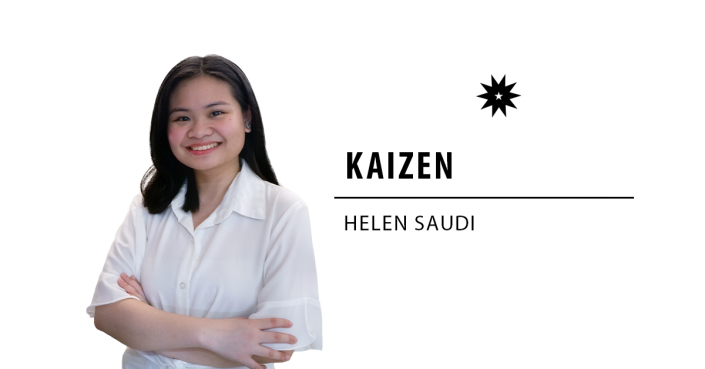If I were writing this piece a couple of years ago, I would have been in my condominium or in a coffee shop around Taft; perhaps, I wouldn’t even have the idea to write this at all.
Ever since I’ve been forced to stay at home because of the COVID-19 pandemic, it feels like I have lost a really huge part of me. Some may consider me lucky as I was able to physically experience the “Taft life”—face-to-face classes in Velasco Hall, study groups in discussion rooms in Henry Sy Sr. Hall, and even Happy Thursdays at Beach. But a part of me still feels robbed.

Back in Taft, I had the freedom to do almost anything. I also had the freedom to set boundaries between life and work. Right now, the only physical boundary between the two is the one between myself and my laptop screen—and it doesn’t do much at all.
This blurry boundary has pushed me to my limits, to the point where I would not even realize how much time I’ve been spending in front of a screen. This black screen that comes to life when my laptop is used constantly taunts me to take on more work and to not stop at it. I often find myself sucked into this virtual environment, making me forget that I have a life outside this digital world. But when I do remember that, I realize that my life had been taken away from me by an incompetent government, causing such a mishandled pandemic.
In these two years, one of the most alarming things—aside from the justification of the lapses of this administration—is the romanticization of overworking. We don’t realize that this cultivates the toxic “hustle culture” that people, especially those on social media, highly glamorize. This culture normalizes a cycle of overworking, making it a lifestyle. The overrule of life at home and downtime is sought after as people often equate constant overwork to success. Those stuck in this cycle often associate more hours of work to getting ahead of life easily. But the reality is that the hustle culture does not guarantee that at all—not unless you take care of yourself.
But don’t get me wrong; I’m not against anyone working hard. I respect those who dedicate so much time to their growth and development. However, this toxic culture of overworking leads to burnout and self-sacrifice, making it totally counterproductive. Burnout will only slow you down; it will only make you less creative. Self-sacrifice, meanwhile, will affect your mental health—causing chronic stress, anxiety, and depression.
We’re all familiar with this whole new setup. We have a group chat where we ask our friends how they are and what they’re doing. One would then complain about academic requirements, telling you how much sleep they’ve lost in the last couple of days. Yet, they continue to take on so much extracurricular work. Another friend would say that they haven’t done much in the last couple of days. But this surprises you and your other friend despite this supposedly being normal.
It seems as if we are depending too much on the amount of work we get done to prove our self-worth. We try to race with each other, despite being in different timelines, just to try and reach the same amount of tasks accomplished.
The reality is, hustle culture is just a glamorized term for workaholism. It’s become ingrained in our ways of working, even in our daily routines. But like other cycles, this can be broken—and it all begins with our mindset. We must recognize that hustle culture isn’t benefiting us at all; the only thing we get out of it is tiredness and missed opportunities to explore other passions and to spend time with people who matter to us. At the end of the day, what matters most is we get the job done without needing to sacrifice anything—especially not our well-being.
Boundaries are important. Simple things like giving yourself a rest day or fixed working hours will help you regain what you lost. You must create a clear line between productivity and your limits; create a balance between life and work. We get so lost in the amount of work we do and end up losing ourselves to this archaic mindset of seeking validation from our tasks.
Remember, your worth does not depend on how many cups of coffee you’ve had, or on how many hours you’ve spent in front of your computer. Rest is normal; it’s a basic need. You should never feel guilty for listening to your body when it asks you to pause and take a break.
Working hard will get you places, that’s for sure. But working too hard may cause you more setbacks. At the end of the day, your mental and physical well-being will always be more important. Hustle, but live a little more.
